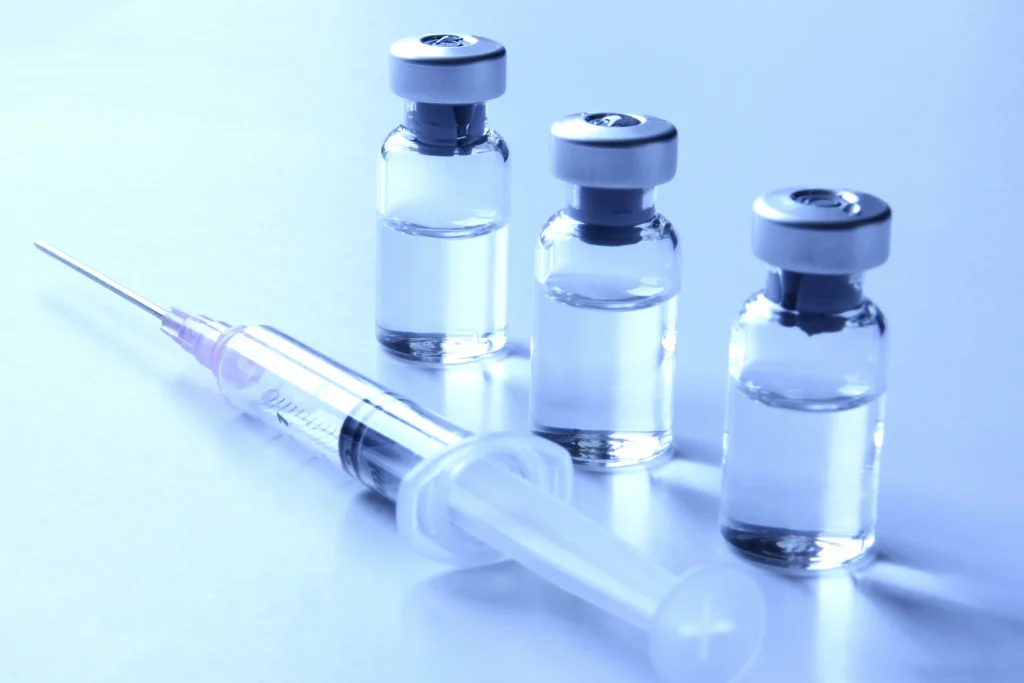Injectable estrogen is a critical health need for transgender women, as shown in the following research by Dr. Sean Cahill and Sophia Geffen of The Fenway Institute,Tim Horn of Treatment Action Group, and Kimberleigh Joy Smith of Callen-Lorde Community Health Center. The research was presented recently in an informational poster at the 22nd International AIDS Conference in Amsterdam.
Background
Hormone therapy to affirm gender identity is a medically necessary intervention for many transgender individuals. Studies have shown that gender affirmation through hormone therapy can improve psychological adjustment and quality of life, including reduced anxiety and depression, higher self-esteem, and improved social functioning. The class of estrogen used for feminizing therapy is estradiol and is commonly delivered to transgender women through a patch, oral or sublingual tablet, or injection.
From 2015 to 2017, a reliable supply of 40 mg/mL injectable estrogen was not available in the United States, and reports suggest that shortages have reoccurred for years and continue in 2018. Lack of access to hormone therapy poses a significant health equity issue for transgender women and presents a structural barrier to HIV prevention and care.
“Lack of access to hormone therapy poses a significant health equity issue for transgender women and presents a structural barrier to HIV prevention and care, said Cahill, Director of Health Policy Research at The Fenway Institute and poster coauthor. This poster describes the collaborative work among Fenway, the Callen-Lorde Health Center in New York, and Treatment Action Group to end this shortage and prevent its recurrence.”
The Shortage of Injectable Estrogen
According to the U.S. Food and Drug Administration (FDA), a shortage of estradiol valerate began on August 10, 2016 and was fully resolved on June 12, 2017. However, the Callen-Lorde Community Health Center in New York City reported shortages in July 2016, when they received none of the 20 and 40 mg/mL formulations in their weekly drug shipment, and were told that the shortage would last until at least October 2016. This shortage affected the availability of Delestrogen (Parr Sterile Products) and its generic counterpart estradiol valerate (Perrigo), in the 10, 20, and 40 mg/mL formulations. Prescribing practices and patient preferences differ significantly through the country. However, providers and patients in Boston and New York City report that injectable estrogen at the 40 mg/mL dosage is the highest and most frequently prescribed dosage of injectable estrogen for transgender women.
There are no studies evaluating the benefits or risks of injectable estradiol, resulting in a lack of empirical data. Patients who do not achieve adequate feminization or adequate circulating blood concentrations of estradiol through oral and transdermal estrogen are often referred to injectable forms.
Reasons for the shortage were ill-defined, with the FDA listing “shortage of an inactive ingredient component” for Perrigo’s product, and listing “other” as the cause of the shortage of Par’s product, along with estimated release dates. Consumers and providers were not provided any information regarding what was required to resolve the shortage, and posted release dates often were not met.
Description
In response to the U.S. shortage, a proactive and aggressive advocacy campaign was developed to emphasize the importance of injectable estrogen for transgender women, educate the transgender community about the health risks of seeking estrogen outside of clinical settings, highlight the failure of the U.S. Food and Drug Administration’s (FDA) and pharmaceutical companies’ ability to guarantee a supply of injectable estrogen, and outline ways to remedy the shortage.
The campaign included the following:
- Sign-on letter to pharmaceutical companies that manufacture the generic and brand name estrogen. This was co-authored by two community health clinics and a global treatment advocacy organization and generated 570 signatories
- Meetings with U.S. FDA representatives
- An issue brief distributed nationally
- Mobilization efforts to encourage individuals to submit public comment
- Media advocacy
A short-term solution of restocking all formulations of injectable estrogen was proposed.
Lessons Learned
“Ineffective FDA and manufacturer responses to repeated estrogen shortages are due in part to a lack of research and approved prescribing guidance for transgender women and preferred hormone therapy formulations,” Cahill said. “The U.S. Department of Health and Human Services and the National Institutes of Health should fill critical caps in the clinical science of hormone treatment for gender affirmation.”
The opaque drug shortage reporting practices by the FDA and by the manufacturers highlight the need of a more transparent and proactive process to ensure that medications are kept on the market. Either through legislation or regulations, the FDA’s oversight of manufacturer reports should be strengthened to ensure that all agency communications provide clear information describing the reason(s) for the drug’s shortage, manufacturing and regulatory steps taken to address the shortage, and accurate stock replenishment dates. In addition, the FDA should be more proactive in establishing contingency plans in the event of prolonged shortages, including expedited approval of bioequivalent products.
Conclusion
There is a pressing need for clinical research in support of supplemental FDA approvals of injectable estrogen for transgender women; safety, tolerability, efficacy, and acceptability comparisons with other estrogen-based formulations; and emerging hormonal products with potential for transgender women. These all require the attention of the federal Department of Health and Human Services. National Institute of Health-funded research programs should help fill critical gaps in the clinical science of hormone treatment for gender affirmation. More research is required to strengthen standard-of-care clinical management guidance for transgender women, to support evidence-based policies and to safeguard against deprioritized and protracted disruptions in access, such as those associated with drug shortages.


